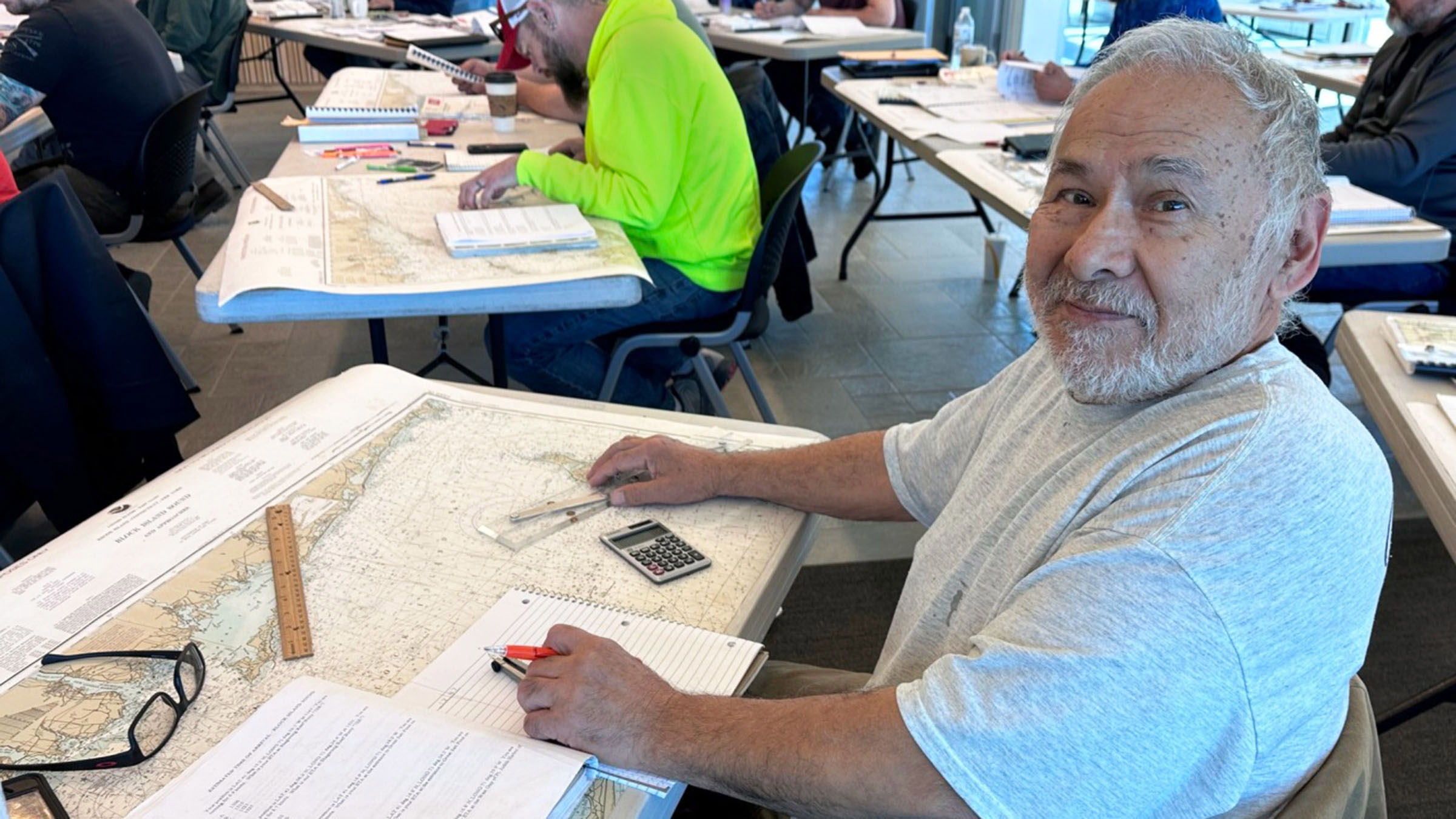Imagine a company diverting profits to support its community—not simply through a one-time donation, but as a core way of operating that prioritizes service. While a primary mission of most corporations is to maximize profits for owners or private shareholders, Native entity enterprises—that is, businesses owned by Native entities—have a distinct mission to benefit a different kind of shareholder: their community. In the words of Shauna Hegna, president of Koniag—an Alaska Native Corporation (ANC) with federal contracting operations—“We’re caring for the generations we’re never going to meet.”
Native entities are distinct bodies in Indian Country with formal political or statutory status. They include, but are not limited to, ANCs, Native Hawaiian Organizations (NHOs), and tribal governments. Native entity enterprises exist primarily to raise revenue for tribal governments, fund community services, and provide employment opportunities for their communities. While other for-profit companies may engage in charitable giving, Native entity enterprises factor community development into routine business decisions. All three types of Native entities have unique legal status with the federal government enabling them to operate federal contracting enterprises.
Over the past four decades, federal contracting has risen as a core source of stable revenue for Native entity enterprises. From 1981 through 2021, Native entities earned $202 billion in revenue (in 2021 dollars) from federal government contracts. Federal contracting is now the primary source of revenue for ANCs and NHOs and the second largest for federally recognized tribes, following gaming. Since the late 1990s, the share of overall federal government contracts awarded to Native entities has also increased.
Understanding the social and economic impacts of Native federal contracting requires a close look at how Native entity enterprises approach federal contracting as a community development tool. We explore their unique corporate structures and community development programs through recent interviews with representatives of three enterprises: a tribal enterprise (Mille Lacs Corporate Ventures), an NHO-owned enterprise (the Nakupuna Companies), and an ANC (Koniag).
Mille Lacs Corporate Ventures: Bolstering the local economy and quality of life
For Mille Lacs Corporate Ventures (MLCV), federal contracting is a recent addition to the enterprise’s economic development strategy. The central Minnesota-based Mille Lacs Band of Ojibwe founded MLCV in 1991 to build a sound economic future for tribal members. Established as a tribally chartered corporation under Title 16 of the Mille Lacs Band Code, MLCV manages several enterprises across the gaming, hospitality, marketing, and government contracting industries.
Why did MLCV venture into federal contracting? “This industry offers a scalable opportunity distinct from gaming which is capable of creating a substantial impact,” said Dustin Goslin, MLCV vice president of business and economic development.
In March 2020, Makwa Global—a wholly owned tribal enterprise operated by MLCV—received certification from the U.S. Small Business Administration’s 8(a) program, which provides eligible ANCs, NHOs, tribally owned enterprises, and individual entrepreneurs with technical business assistance and support for procuring federal contracts.
In Ojibwe, makwa means black bear—a valued animal and source of knowledge for many Ojibwe people. Like its namesake, Makwa Global quickly became a valued resource, landing contracts during the COVID-19 pandemic at a time when many of MLCV’s hospitality businesses temporarily closed. By 2021, Makwa Global had secured multiple U.S. Department of State contracts worth over $20 million, and in 2021 it received a $30 million contract award from the U.S. Environmental Protection Agency.
When Makwa Global was established, the company acquired existing federal contracting firms and hired experienced leadership and staff to grow the enterprise. Over the course of a year, Makwa Global became a parent company to several subsidiaries spanning various contracting sectors, including professional business services and staffing, IT, cybersecurity, security, training, and logistics.
How does MLCV connect profits to the Mille Lacs tribal economy? The enterprise invests profits in community-focused activities such as workforce and housing projects, renewable energy, broadband infrastructure, and community entrepreneurism. For example, MLCV’s tribal business incubator program connects aspiring small business owners with training and technical assistance in accounting, marketing, and legal support—and eventually with physical space at incubator locations. Participants learn how to create business plans, gain access to business-planning resources and skill-development opportunities, and build connections with experts in the field. Since the program’s inception, 46 tribal and non-tribal entrepreneurs have participated. In this way, MLCV’s federal contracting revenue contributes to expanding the business ecosystem of the entire community.
The Nakupuna Companies: Investing in Native Hawaiian communities
For NHOs, which are nonprofit organizations incorporated in Hawaii, participation in federal contracting is more than a business decision. Contracting creates a pathway for safeguarding their communities and heritage. As such, federal contracting naturally connects to the mission of the Nakupuna Companies, an NHO-owned family of businesses committed to increasing economic opportunity for Native Hawaiian communities.
The Nakupuna Companies originated as a single company in 2003 and achieved 8(a) program certification in 2014. Since 2015, the Nakupuna Companies have grown into a family of five federal contracting businesses. These companies primarily bid on contracts in the professional, scientific, technical, and administrative and support services sectors. For example, in 2022 Nakupuna Consulting secured a multi-year contract from the U.S. Department of Defense to build the platform for the U.S. Navy’s payroll and human resource systems.
The 8(a) program influences the business structure and operations of the Nakupuna Companies and other NHOs as federal contractors. Under the 8(a) program, NHOs must produce a detailed plan and annual reports demonstrating how profits earned through federal contracting will principally benefit Native Hawaiians. How individual NHOs spend net profits to benefit Native Hawaiians varies depending upon each organization’s mission. “Nakupuna taps into the 8(a) program and federal contracting as an engine for positive community impact,” said Lindsay Ah Loo, executive director of the Nakupuna Foundation, the Nakupuna Companies’ parent NHO.
From 2015 through 2023, the Nakupuna Foundation awarded $11.2 million to Native Hawaiian organizations and other Hawaii-based programs. The Nakupuna Foundation directs federal contracting profits to community investments that fulfill the foundation’s mission to support the economic advancement of Native Hawaiians through culturally centered education and employment opportunities. “We're looking at opportunities to impact the current, mid-term, and long-term educational outcomes of our Native communities; strengthen informal learning institutions; and support organizations that grow cultural identity,” Ah Loo said.
For example, the Nakupuna Companies support a program that provides Native Hawaiian educators with training in culturally relevant experiential-learning approaches to teaching STEM (science, technology, engineering, and math). As another example, the Nakupuna Companies prioritize support for Kamehameha Schools, which provide preschool to post-secondary educational programs and scholarship opportunities to Native Hawaiians across the state. In 2023, the Nakupuna Companies contributed resources for recovery efforts following the wildfires on Maui that destroyed much of the town of Lahaina. As part of a large U.S. Army Corps of Engineers contract, the Nakupuna Companies provided field data technicians who assisted with hazardous material removal efforts.
Community investment is so important to the Nakupuna Companies that early in the companies’ development, they borrowed money to secure their community commitments. “This speaks to how we make business decisions with service to our community at the core,” Ah Loo said. “We ask the question, ‘Are we meeting our commitment to giving back to the community this year?’ It’s emblematic of our business decisions and our responsibility as an NHO—and how tightly woven together they are.”
For the Nakupuna Companies, federal contracting is about more than providing services, making a profit, or building a business—it’s about contributing to Native Hawaiian communities and helping preserve heritage.
Koniag: Fostering enduring cultural heritage
Following passage of the Alaska Native Claims Settlement Act, ANCs were created in the 1970s with a dual purpose: act as stewards of ANC-owned lands and resources, and build profitable businesses for Alaska Natives as ANC shareholders. Under the act, Alaska Natives became shareholders in 12 regional and 200 village corporations, owning some 44 million acres of land and resources. Original ANC shareholders and their descendants elect their all-Native Alaskan boards of directors, who are responsible for determining how ANCs will invest in their communities and shareholders.
Off the southern coast of the Alaska Peninsula, Koniag serves as the ANC and an economic development tool for the Alutiiq, the Indigenous people of the Kodiak Archipelago. Koniag defines itself as a “forever corporation”—that is, a corporation committed to serving Alaska Natives in perpetuity. Like the Nakupuna Companies, Koniag’s federal contracting work primarily takes place in the professional, scientific, and technical services industries; computer design and related services; and administrative support and services.
Much of Koniag’s corporate revenue is invested in programs to enrich the lives of shareholders, their descendants, and the entire Alutiiq community. This revenue is largely earned through Koniag’s enterprises, such as Koniag Government Services—an Alaska Native-owned corporation under the parent ANC. In 2022, over 70 percent of Koniag’s revenue was derived from Koniag Government Services and Koniag Government Services’ 20 subsidiaries. In 2022, Koniag distributed nearly $28 million in benefits to the Kodiak community and shareholders.
How is Koniag thinking long-term to ensure financial stability for its shareholders? In 2019, shareholders approved a plan proposed by Koniag’s board to create a settlement trust—that is, a financial instrument to manage, protect, and distribute assets to shareholders. In 2023, the trust’s investment contributions reached $30 million. As explained by Koniag President Shauna Hegna, the board and shareholders deemed establishing a trust as essential to preserving principal assets vital to Koniag’s mission of caring for future generations.
Establishing the trust enabled Koniag to safeguard ongoing support for its cultural and community programs, which aim to support well-being and cultural heritage during times of celebration and grief. These community investments include biannual elder benefit payments, a burial assistance program, scholarship programs that range from preschool to graduate school, and support for nonprofit organizations that teach Alutiiq culture and heritage.
Future research avenues
As illustrated by these three Native entity enterprises, success for Native federal contractors means not only securing contracts and providing the federal government with critical services, but also making long-term investments in their Native communities. They do this through cultural heritage programs, educational programming and scholarships, social support, and other community initiatives.
As part of the Center for Indian Country Development’s mission to advance the economic self-determination and prosperity of Native nations and Indigenous communities through actionable data and research, we conduct research and analysis on the role of federal contracting in Indian Country economic development. As we explore federal contracting’s expanding revenue role, research on the scope and impact of Native entity enterprises’ community activities can shed light on their full economic and social contributions.






